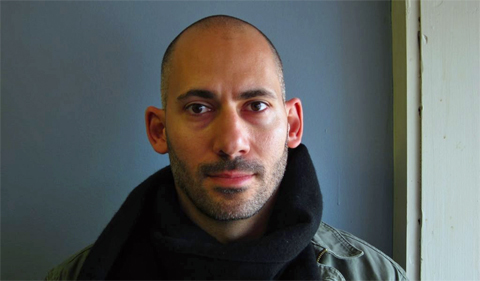
Dr. Ziad Abu-Rish
Dr. Ziad Abu-Rish, Assistant Professor of History, recently contributed to a roundtable, “Teaching the Introductory Middle East History Survey Course,” in the journal Review of Middle East Studies (published by Cambridge University Press).
The roundtable featured contributions from seven historians, most of whom had significant teaching and publishing experience. Abu-Rish’s contribution was titled “The Middle East Survey Course: Challenges and Opportunities.”
Abu-Rish has regularly taught a modern Middle East survey course (HIST 3371 Middle East History, 1500-Present) since coming to Ohio University in Fall 2014. His contribution to the roundtable highlighted what he describes as the “pedagogical and administrative challenges” of teaching the history of the Middle East and North Africa (MENA) region as an introductory survey.
One of the pedagogical challenges Abu-Rish outlined was that of focus: “Many of us wrestle with the balance between [the two poles of processes and events] in both organizing our syllabi as well as constructing our lectures and assigning our readings. How we navigate this challenge has serious repercussions for what students take away from the course both in the short and long term. Key in this regard is also how we evaluate the students.”
On the administrative level, Abu-Rish addresses the challenge of declining enrollments and some of the constraints universities place on area studies courses. To this, he argued that “we need to be active participants in both critiquing the status quo and better positioning our course offerings.” Throughout his contribution, Abu-Rish identified several of these types of pedagogical and administrative challenges and offered what he viewed as effective ways of addressing them.
He concluded on an optimistic note: “For those of us who live in or study the Middle East and North Africa, these are especially pressing times. This difficulty is underscored by the realities of socioeconomic de-development, emboldened authoritarianism, civil war, military intervention, and settler-colonial occupation. At the same time, we are living in a period in which the field of MENA studies has never been more diverse in terms of case studies, more eclectic in terms of theoretical approaches, and more voluminous in terms of publications. . . . For these reasons, we are well equipped to instantiate a long-term curiosity and critical understanding of the region in our students.”
Abu-Rish is offering his HIST 3371 Middle East History, 1500-Present this fall term. He serves as the director of the Middle East and North Africa Studies certificate program.
Read more about Abu-Rish’s research and teaching interests on his department web page.



















Comments